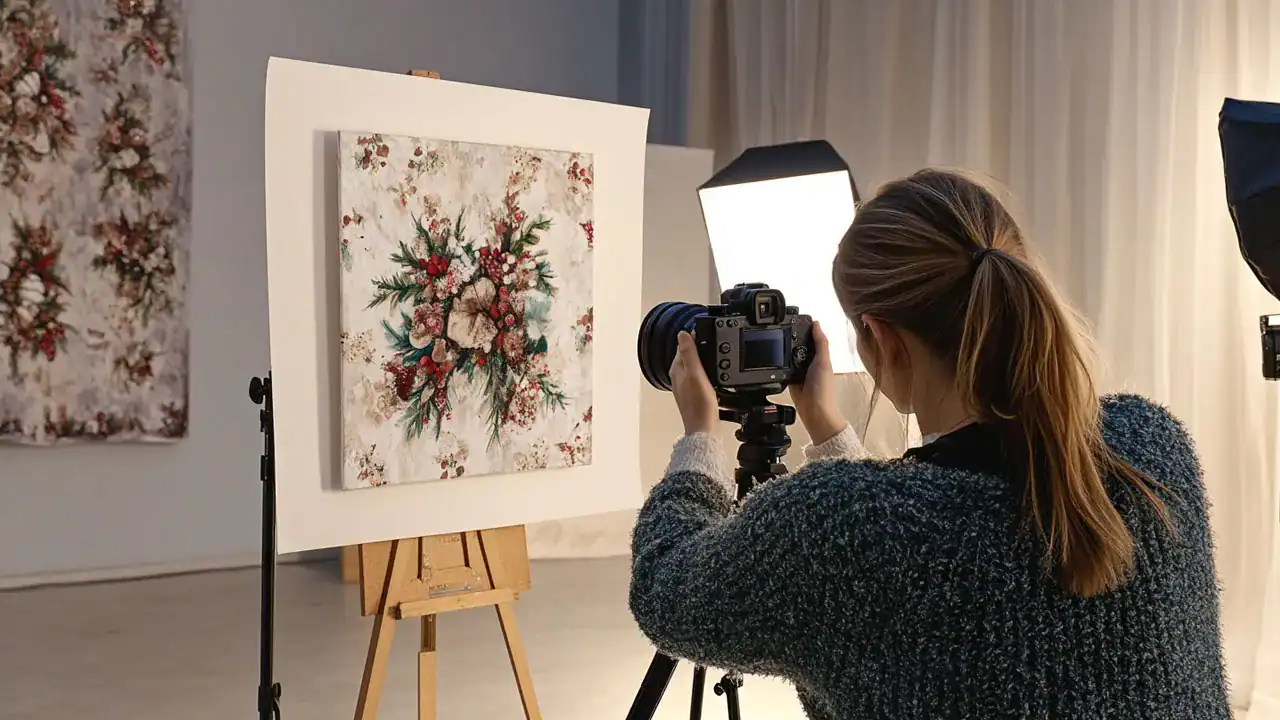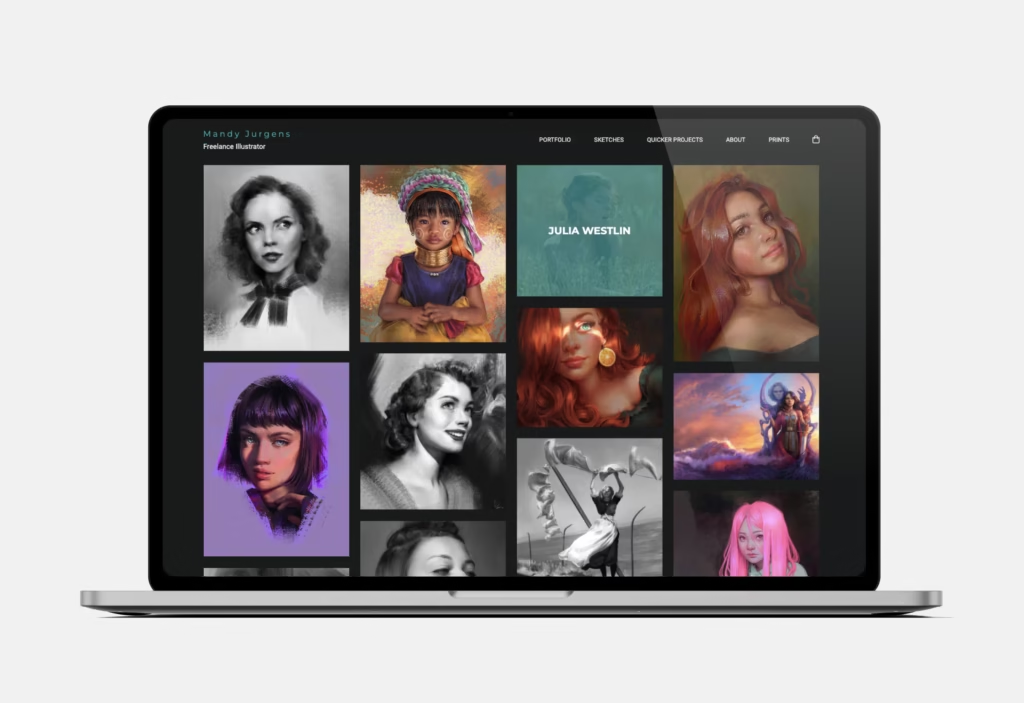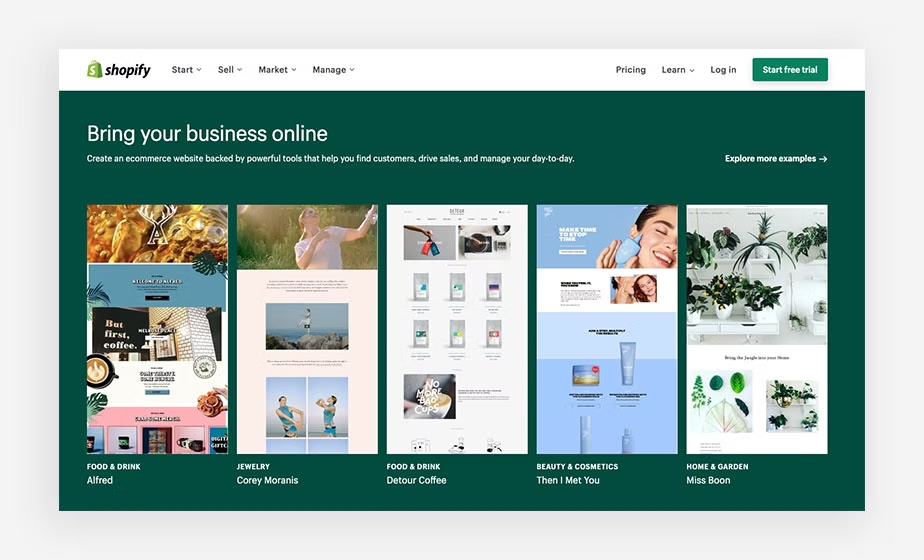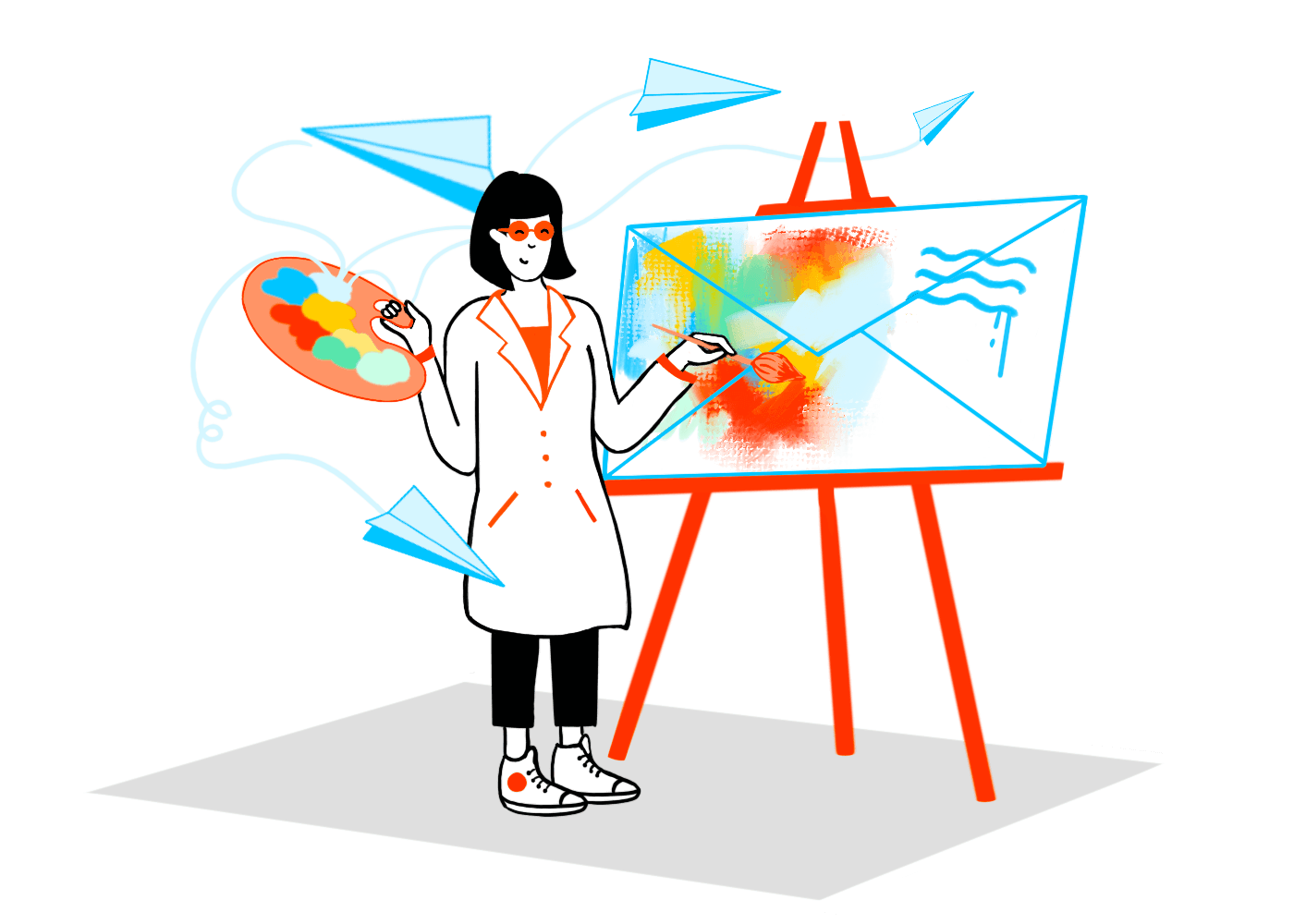Your journey as an artist deserves a vibrant showcase that truly reflects your unique style. A well-crafted digital portfolio can do just that, inviting potential buyers to explore your creativity.
Start by curating high-quality images of your artwork; each piece should resonate and captivate.
An engaging artist statement or bio adds a personal touch, allowing viewers to connect with your vision.
Be sure to include your contact information and link to your social media accounts, making it seamless for interested buyers to reach out.
When it comes to your art presentation, aim for a clean, easy-to-navigate layout. Highlight your best work prominently and keep your digital portfolio updated to serve as an artist showcase that enhances your online gallery, creative resume, visual portfolio, and art presentation.
Choosing The Right Portfolio Website
Creating a space to highlight your creativity can be a rewarding experience, and the right platform plays a big role in that journey. A solid portfolio website helps to build your online presence and connect with your audience.
To kick things off, think about your goals.
Are you looking to sell your art, or is it more about sharing your passion with others? This choice will help steer you toward the ideal platform for your needs.
Next up, usability and web design are key factors.
Opt for a platform that’s straightforward and aligns with your personal brand. A clean, attractive layout will showcase your digital artwork beautifully, creating a delightful experience for visitors. By ensuring easy navigation, you make it effortless for visitors to explore your portfolio website and appreciate your digital artwork, enhancing your personal brand and online presence through thoughtful web design and art curation.
| Criteria / Platform Type | DIY Website Builders (Wix, Squarespace) | WordPress (Self-Hosted) | Specialized Portfolio Platforms (Behance, Dribbble, ArtStation) | Custom-Coded Site | Template Marketplaces (Webflow templates, ThemeForest) |
|---|---|---|---|---|---|
| Ease of Setup | Drag-and-drop editors, beginner-friendly | Moderate (needs hosting & theme setup) | Very easy—just create an account | Advanced—requires coding knowledge | Moderate—import template and customize |
| Design Flexibility | High within their editor limits | Very high with themes/plugins | Limited to platform’s layout | Unlimited | High (depends on template & platform) |
| Cost | $10–$30/month typical | Hosting $5–$15/month + optional premium themes | Free to join; optional pro tiers | Domain + hosting + dev cost (varies widely) | Hosting $5–$15/month + template cost |
| Maintenance | Minimal, auto-updates | Must handle updates/backups | None—platform maintains everything | Full responsibility (server, updates) | Similar to WordPress if self-hosted |
| Best For | Beginners, quick launch, small portfolios | Bloggers, content creators, scalable portfolios | Designers, artists, illustrators seeking community & exposure | Tech-savvy professionals or those needing unique interactive features | Creatives wanting unique design without coding |
| SEO Control | Good built-in tools | Excellent (plugins like Yoast) | Limited; depends on platform’s SEO | Full control | Good if combined with WordPress/Webflow |
| Monetization Options | Basic e-commerce & ads | Full e-commerce, ads, memberships | Limited—mainly visibility, not direct sales | Unlimited (custom integrations) | Similar to WordPress/Webflow |
| Integrations | Built-in apps (email, booking) | Vast plugin ecosystem | Limited to platform features | Custom APIs possible | Depends on platform |
| Performance / Speed | Optimized hosting, usually good | Depends on hosting quality | High (platform-managed CDNs) | Fully customizable; speed varies | Depends on platform/hosting |
| Brand Control | Strong—you own domain & style | Strong—you own domain & code | Medium—profile under platform branding | Complete control | Strong—you own domain & style |
| Community Exposure | Low (must promote yourself) | Low | High—built-in creative community & job boards | None unless you build marketing channels | Low |
| Learning Curve | Very low | Moderate | Very low | High | Moderate |
Essential Elements Of A Digital Portfolio
Your creative showcase can truly speak volumes about your artistic identity and help you connect with potential buyers. First off, high-quality images are non-negotiable—your artwork deserves to shine.
Don’t settle for poor visuals that can overshadow your unique design aesthetics; take the time to photograph or scan your pieces properly.
Next, embrace your personal branding.
This is your opportunity to express who you are as an artist consistently throughout your portfolio. A strong artist statement can forge a connection with your audience, and engaging project displays can keep them interested in what you have to offer.
Clear contact information is a must for easy outreach, ensuring that interested parties can easily get in touch with you. Now, transitioning from the right portfolio website we discussed, let’s explore how to effectively showcase your artwork through strategic self-promotion, utilizing design aesthetics, highlighting your artistic identity, enhancing project display, and integrating social media for a broader reach.
Artistic Portfolio Development
- High-quality images can increase engagement by up to 94%, making your artwork more appealing to potential buyers.
- Consistent personal branding across your portfolio can enhance recognition and trust among your audience.
- An effective artist statement can improve connection and relatability, encouraging potential buyers to invest in your work.
- Integrating social media into your promotional strategy can expand your reach and attract a wider audience for your artwork.
How To Showcase Your Artwork
Effectively presenting your creations can truly influence how buyers respond. Start off by crafting an interactive portfolio that showcases your standout pieces.
Use high-quality images to capture the essence of your creations, but think beyond just the artwork.
Consider how it aligns with your overall branding strategy.
Displaying your pieces in real-life settings allows potential buyers to imagine them in their own homes. User experience plays a significant role here, so make sure navigation is seamless, and each piece tells its own story, inviting viewers to connect and explore further.
Keep experimenting with different presentation styles. You’ll discover the best fit for your audience and yourself.
The journey of refining your photography portfolio is all about showcasing your personality through your art. Transitioning to a digital platform enables artists to enhance their interactive portfolio, streamline ecommerce for artists, refine their branding strategy, showcase their photography portfolio, and leverage digital storytelling to elevate user experience.
Tips For Effective Art Presentation
Have you ever wondered what it takes to make your art truly stand out? A great starting point is paying attention to the lighting. The right illumination can breathe life into your pieces, bringing out those vibrant colors and intricate details.
Experiment with different times of day to catch the perfect glow for your creations.
And don’t overlook how shadows can add depth, enhancing the overall visual appeal of your artwork.
Now, let’s chat about context.
Sharing the stories behind your pieces can create a bridge between you and your audience. This visual storytelling not only captivates but also fosters a deeper connection.
When people grasp your inspiration, they often feel more invested in your work. Utilizing effective portfolio templates can help to showcase your art beautifully. Excited to explore innovative portfolio templates that enhance art marketing, boost client engagement, and showcase visual storytelling through user-friendly website builders and creative tools.
| Aspect | Importance |
|---|---|
| Lighting | Enhances colors and details in artwork |
| Shadows | Adds depth and visual appeal |
| Visual Storytelling | Creates a connection with the audience |
| Portfolio Templates | Showcase art effectively and boost engagement |
Building Your Personal Brand Online
Crafting a unique persona on the web is a key step for indie artists. What sets your art apart and makes it connect with people? Consider your vision and put it into words with a catchy tagline or artist statement that captures your essence.

Next, focus on your portfolio optimization. It’s important to choose platforms that align with your artistic style—whether it’s a personal website, vibrant art blogs, or engaging social media.
Present your work in a way that fascinates your audience; high-quality images and a sleek layout are essential for attracting attention.
Your art should truly shine!
Transitioning from showcasing your art, let’s talk about integrating social media for exposure. Platforms are not just for sharing; they are vital in building connections within the creative community. Think about how creating a strong online identity through art blogs and effective networking can greatly enhance your portfolio optimization and improve your SEO for artists, ultimately leading to more opportunities for showcasing your multimedia projects.
Integrating Social Media For Exposure
Reaching the right audience can be a game-changer for showcasing your creativity. Digital platforms like Instagram and Pinterest are fantastic avenues for artists, making it easier to connect with potential buyers.
Start by figuring out where your audience hangs out online, as this knowledge will enhance your artistic outreach.
Both of these platforms thrive on visual content, making them ideal for displaying your artwork.
Keeping an eye on your engagement metrics is crucial; they offer insights into what your audience resonates with the most. Building genuine connections through comments, shares, and stories can significantly elevate your online presence.
Focus on creating a supportive community that appreciates your contemporary art, rather than just pushing your work. This approach will help you foster relationships and lead to opportunities for increased visibility.
Artistic Outreach
- Over 1 billion users are active on Instagram, providing a vast audience for artists.
- Pinterest drives 400% more sales than other social media platforms, highlighting its effectiveness for visual content.
- Engagement metrics can increase visibility by up to 20%, indicating the importance of audience interaction.
- Building a community can lead to a 50% increase in brand loyalty among followers.
Crafting A Creative Resume For Artists
Crafting a standout summary can be a game changer for artists aiming to connect with potential clients. Traditional formats often miss the essence of creativity, making it tough to showcase your artistic flair.
Instead, think about how design trends can play a vital role in expressing your unique style.
Highlight your key skills and artistic process, almost as if your summary serves as an engaging portfolio management showcasing your best work.
Incorporate vibrant colors, eye-catching fonts, and elements that truly reflect your personal brand. The goal is to create a narrative that invites viewers into your artistic journey.
This approach not only enhances the impact of your resume but also aligns smoothly with optimizing your creative portfolio ideas for SEO, ensuring it reaches the right audience. It’s all about presenting your art in a way that feels authentic, embracing portfolio management and design trends while showcasing innovative user interface designs, creative portfolio ideas, artistic collaboration, and the latest digital art tools.
Conclusion
Making sure your creations shine online is key for every indie artist. Start by streamlining your visual branding; a clear representation of your unique style helps viewers connect.
Keep your portfolio fresh with regular updates, as new content not only keeps your audience engaged but also encourages them to return for more.
A thoughtful approach to portfolio analysis can uncover areas for improvement, enabling you to incorporate valuable feedback from peers or mentors.
A well-optimized showcase not only highlights your art but also boosts your visibility across various showcase platforms. With an effective content strategy, you can market your digital craftsmanship with flair, increasing your chances of success in selling your art online
Originally posted 2025-08-19 16:46:51.





